We’re halfway through 2024 now, and this year has carried over two significant trends for the video game industry from 2023 into 2024: a lot of excellent games are coming out, and, unfortunately, the people who make them are suffering. We’ve gotten some fantastic new games like Final Fantasy VII Rebirth and the surprise hit Balatro to keep us playing for hours on end. We’re also seeing major updates to beloved games like Destiny 2 and Elden Ring give us a reason to go back to old favorites. On the flip side, developers are still struggling as mass layoffs have affected thousands of jobs in the first half of the year. At the very least, we can pay tribute to some of the great games these talented developers have put out. We’ll continue to update this list accordingly, just like we did our best games of 2023 collection.
Here are some of the best games of 2024 so far.
Destiny 2: The Final Shape
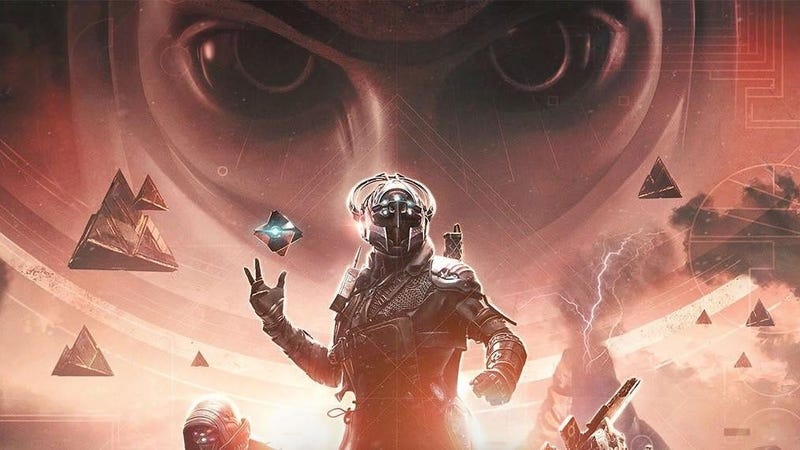
Destiny 2 has been, if I’m being honest here, a fixation of mine for the last several years. The entire franchise has been since it debuted, so when Bungie announced that it was actually concluding the story I’d been playing since high school, expectations naturally skyrocketed. Bungie has been rocked by layoffs and controversies that have worried and continue to worry me about its wellbeing and future, but The Final Shape has alleviated some of those concerns.
I won’t sit here and call it perfect, but it sure is a triumph. It moves away from this mode of storytelling Destiny often engages in, which places emphasis on big proper nouns and increasingly entangled background storytelling, and relies instead on big messy feelings about endings and change. It’s operatic and pulls on exactly the strings you expect it to, and it moved me to tears time and time again. I’ve been on a journey with this game and these characters, and I did in fact feel a pang of relief wash over me upon seeing how it concluded. They actually did it.
After the conclusion of The Final Shape’s story, I took a bit of a break before diving into post-campaign shenanigans, exotic hunting, and endgame prep, which ultimately culminated in a tremendous raid I finally got to complete the other day. And perhaps I can best sum up my feelings about The Final Shape by sharing how I felt at the end of the raid: I was left in awe at the repeated ingenuity of the folks at Bungie who put that immaculate thing together, and despite it being long as hell, as well as occasionally infuriating to the point of madness, I’d run it back any day. –Moises Taveras
Another Crab’s Treasure
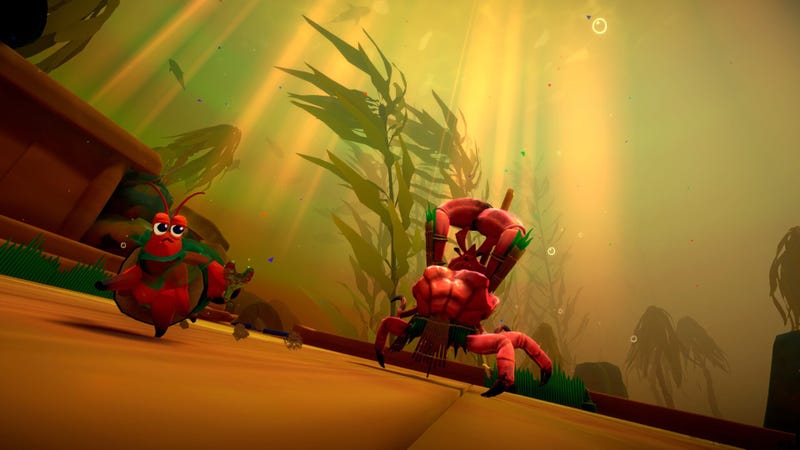
Another Crab’s Treasure is still the feel-good experience of the year to beat. In a year that’s bound to be dominated by talk of that other big Souls thing, I want to take up space and shout at the top of my lungs about what a great game Another Crab’s Treasure is. I have rarely played a funnier game, but just because it lets me have a laugh every now and then doesn’t mean it shouldn’t be recognized for the real-as-hell soulslike that it is.
I had a (comically avoidable) hard time with Another Crab’s Treasure to begin with, and it only alleviated because I finally unlocked the mechanics that tapped into its (ahem) poten-shell. It’s also the only game that makes me want to write god awful puns, so take that for whatever it’s worth. Anyways, it’s soft exterior and comedic demeanor only complement this finely tuned souslike that is fathoms deep, and coming up with different shell combinations for my armor and weapon never stopped being a good time up until the very end of the journey.
In true Souls fashion, ACT’s story is also a cutting critique of the decay of our own society. At the heart of your struggle is the death spiral of the ocean, brought about by the incessant carelessness and literal pollution that unchecked capitalism spawns. It turns that rot and decay into a literal force eating crustacean society alive, and the bad guy at the end is an opportunist who thinks he can be the one good rich person but actually makes things a million times worse instantaneously. It’s a fable for our times, wrapped up in one of the most appealing packages you can find in 2024, and is almost assuredly one of the year’s best offerings, full stop. —Moises Taveras
Hades II
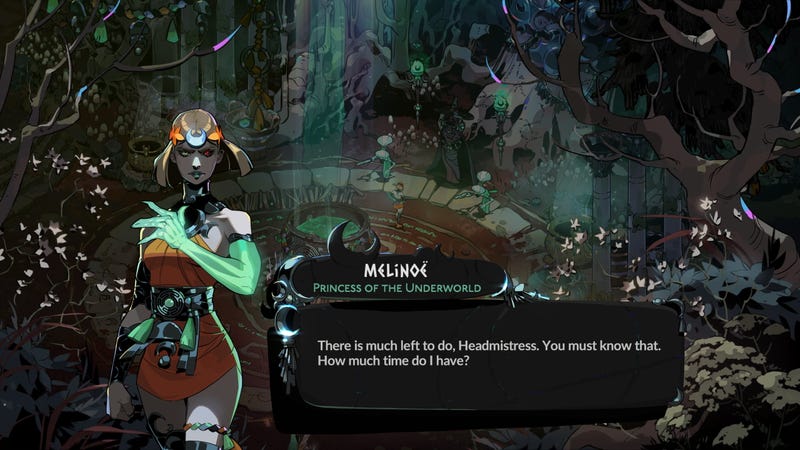
I likely don’t need to tell you this, but did you know that Hades II is really damn good? It seems only natural that the follow up to 2020’s best game feels practically flawless out the gate, but I’m still too stunned by the fact that it exists to think too hard about that. It’s just sitting on my desktop waiting for me to make another run at Chronos, or actually make some headway above ground in Greece, and I hear the siren call of Scylla and her band calling me to the game at literally all times.
Hades 2 isn’t even complete, and yet it feels like everything I could’ve possibly asked for. There is so much depth to the current version of the game that I still haven’t tapped into, and there are probably still gorgeous characters to swoon over, and beautiful regions to gawk at. While we’ve all obviously got ideas of where Supergiant will go from here, the most exciting thing about the game right now is actually not knowing the twists it will continue to take throughout the early access period it’s currently in. So many people I trust were on the ground floor for the original Hades and got me excited about the journey that I’m now taking with Hades 2. Well, I’m sat and ready, Supergiant. Your move. —Moises Taveras
Senua’s Saga: Hellblade II
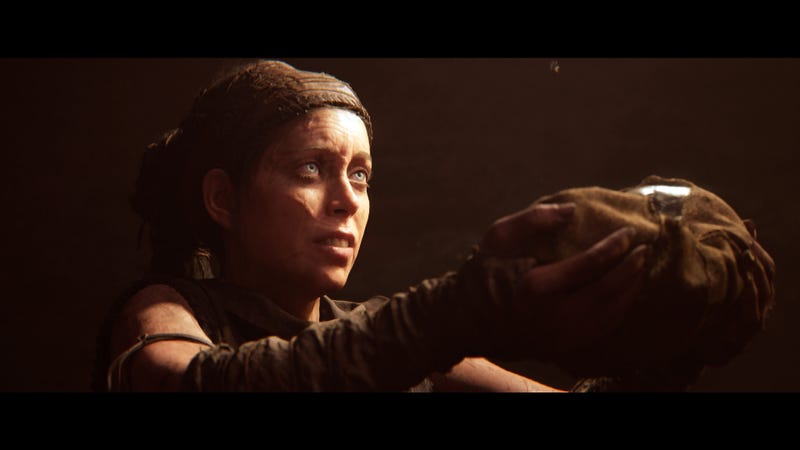
Senua’s Saga: Hellblade II certainly isn’t for everyone. But as it’s shaping up to be my favorite game of the year, I simply must advocate for it to be included in our best of 2024 picks. While the combat and puzzles weren’t everyone’s cup of tea, the emotional contours of Senua’s second game, combined with a cryptic narrative that bends myth and metaphor, made for entertainment and so, so many tears from yours truly.
Of course, I expected Hellblade’s sequel to deliver an emotional journey. But I didn’t expect it to hit so close to home, dealing with themes of self-doubt and interpersonal conflict, issues that have been particularly salient in my daily life recently. But just as Senua would push on to find her way through the maze of reality-bending environments, fighting off many of her own demons, so too would I find the courage to work my way through my own mental labyrinths.
Hellblade was inspiring, deeply affecting, and continues to live with me in my daily life long after its brief, five-hour runtime. It is also a remarkable technical showcase, with generation-defining visuals and performances that breathe such life into this game that even writing about it now, there I go, getting a little misty-eyed yet again. — Claire Jackson
Tales of Kenzera: Zau
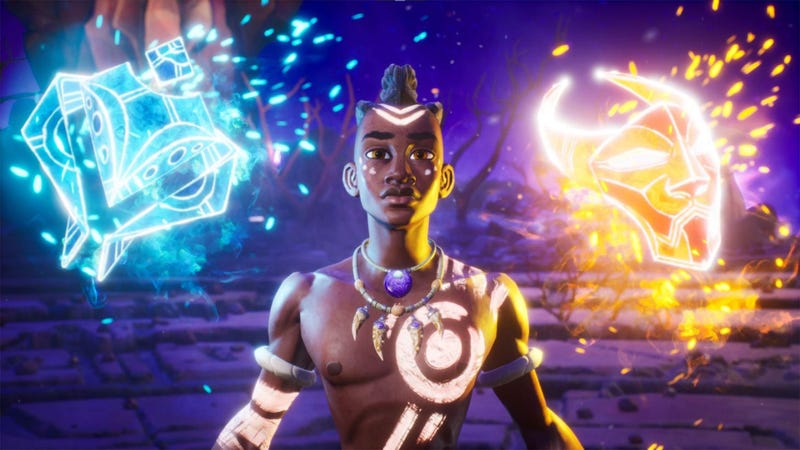
Surgent Studios’ metroidvania Tales of Kenzera: Zau is the type of game that just feels good to play. Yes, its Bantu-inspired aesthetics, music, and storyline are enough to hook you, but its precise movement punctuated by its gorgeous visual effects make an excellent first impression. The slick mechanics make moving through the game’s world a joy, but its poignant story on grief and the various forms it takes kept me going. Zau is a lovely tribute to a culture, a genre, and the people we have to leave behind, and it has been unfairly at the centre of made-up controversy. But it serves as a reminder of how games can let us inhabit new perspectives, and how the industry is better for it. — Kenneth Shepard
Selaco
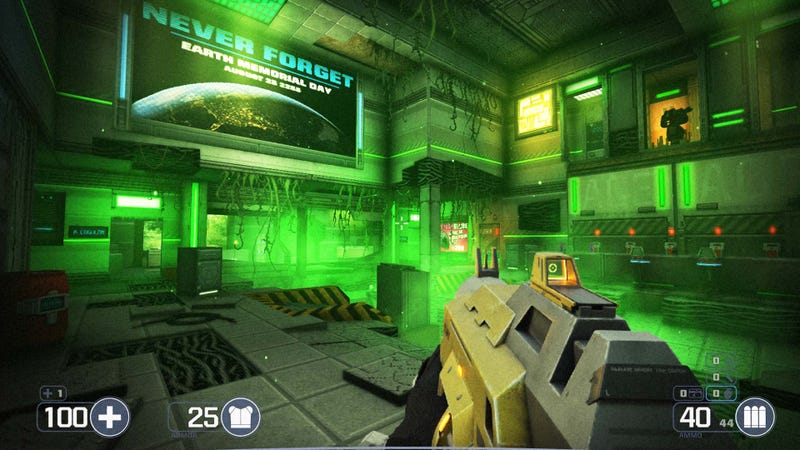
What’s more surprising to me than someone making a new video game using Doom’s aging tech is that this new FPS, Selaco, is one of the best shooters I’ve played in years. Sure, the novelty of a “New game built in Doom engine” is cool and all, but what makes Selaco worth playing is that the retro-themed FPS is actually really, really good. It features some nice world-building, impressive level design, frantic combat, and even some puzzles, too.
Sure, it might not support 4K hyper-realistic visuals, but when you have gunplay this good and action this fun, who cares! I only hope that somehow the small team behind this new game can figure out a way to port their hard work to more platforms because I want more people to play Selaco. — Zack Zwiezen
Isles of Sea & Sky
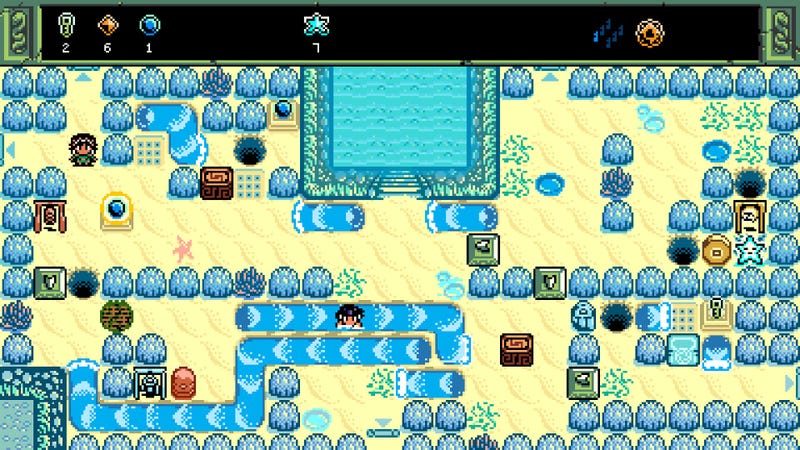
If you’d asked me, I’d have told you the world needs more block-pushing puzzle games like it needs more billionaires. But I’d have been wrong. Not about the billionaires thing, they all need to go. But Isles of Sea & Sky proves that there is definitely room for more Sokoban-inspired puzzling.
This enormous game is a collection of islands, each made up of 25 screens that contain unique and quite brilliant puzzles, sometimes multiple overlapping challenges, that become increasingly interesting as you gain new abilities, Zelda-style. The result is a deep sense of RPG underlying the puzzling surface, making for a game with vastly more substance than your standard block-shoving sim. That the puzzles are quite so clever is the icing on the cake of a game that has gone almost unnoticed in 2024, but deserves to be everywhere. — John Walker
Elden Ring: Shadow of the Erdtree
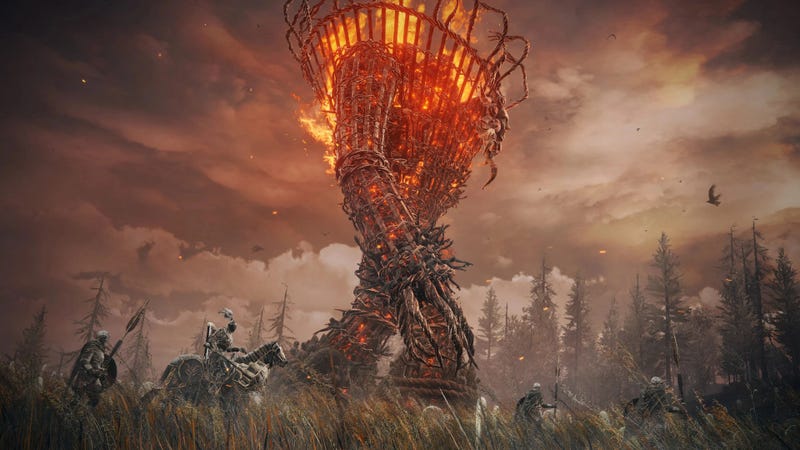
I’ve said it twice before and I’ll say it again: FromSoftware could have released Shadow of the Erdtree back in 2022, called it Elden Ring, and it would have still won GOTY. The sheer scope of this expansion, coupled with all of the different ways you can customize your build and the slew of new enemies you’ll face is enough to stagger you—but you’ll be floored before you even get to all of that.
Merely stepping foot onto the Gravesite Plain, the first area in the DLC, will wow you—the massive Scadutree in the distance, the hulking Golem in front of you, the impossibly large map you can procure with a press of a button. And as you work through all the difficult bosses and see the strange, almost-stagnant beauty of this world, you’ll experience hours upon hours of new wonders, struggles, victories, and more.
There’s just so much here, so much to do and see and fight and read, that it can get overwhelming. In those moments, I find myself walking to the nearest cliff edge to stare out at FromSoftware’s beautiful skybox and wonder what happened to this world and the gods and monsters within it. Then, I see a player message scrawled on the ground, step over to read it, see it just says “but hole,” and remember that this game is beautiful, absurd, silly, and stupid. And then I go back to try that boss for the 68th time. This time, I’ll get it. — Alyssa Mercante
Paper Mario: The Thousand-Year Door (remake)
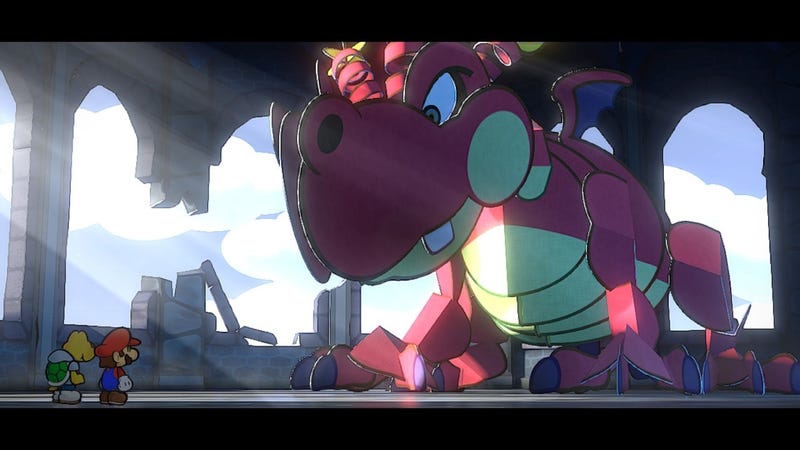
My recollection of Paper Mario’s GameCube outing from 20 years ago was that it was almost too good to be true, a game with writing so sparkling, funny, and heartfelt that I wanted to absorb every word, a saga that’s both adventurous and poignant, and gameplay that remains delightful to the end, never losing a sense of playfulness and discovery. Surely, I thought, this was a case of rose-colored glasses tinting the fond recollections of my (relative) youth. But no. As my time revisiting it on the Switch has shown me, Paper Mario: The Thousand-Year Door is that rare classic you can return to decades after its initial release and find its charm, elegance, wit, and power undiminished. The papercraft visuals, already wonderful on the GameCube, only look more vibrant and captivating today. The RPG fundamentals still strike a perfect balance between approachability and depth. And the writing remains as endearing and hilarious as ever. Nintendo’s been leaning pretty hard into its back catalog to give the Switch’s final year as its flagship console some big releases, but it’s hard to complain about that when what you get as a result is an even better version of a game so timelessly wonderful, it hasn’t aged a day. — Carolyn Petit
Lorelei and the Laser Eyes
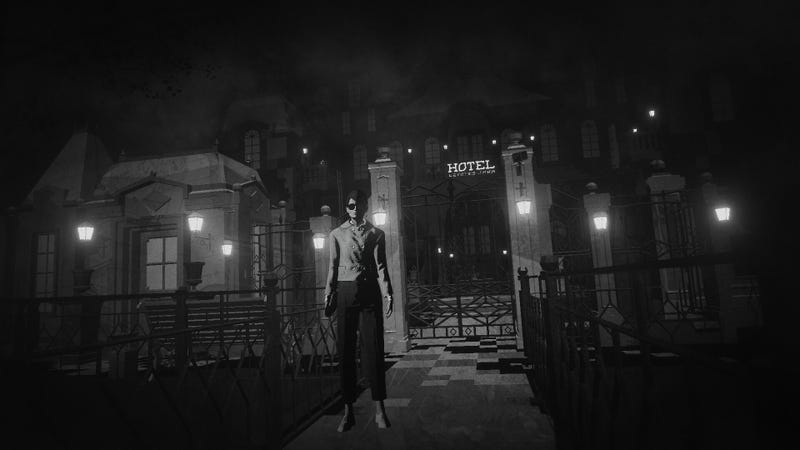
From the second you start Lorelei and the Laser Eyes and it hands you nothing but a cryptic manual and some tampons, you just know things are gonna get weird. The twisting narrative puzzle game from Simogo is a complex, knotty mystery to unwind and it never holds your hand. Drawing on old horror games and French New Wave cinema in equal parts, Lorelei traps the player in a monochromatic mansion filled with seemingly endless locks and puzzles. This is a game that requires a notebook and patience. You will feel like the dumbest person at times and the smartest at others. Lorelei twists in on itself in new forms and mediums constantly, giving the player new perspectives on its puzzle box story. What unravels is a compelling piece of art about art itself. It might be too meta for some, but Lorelei and the Laser Eyes’ particular brand of weirdness works incredibly well thanks to Simogo’s impeccable design. It just might be one of the best puzzle games ever made. — Willa Rowe
1000xRESIST
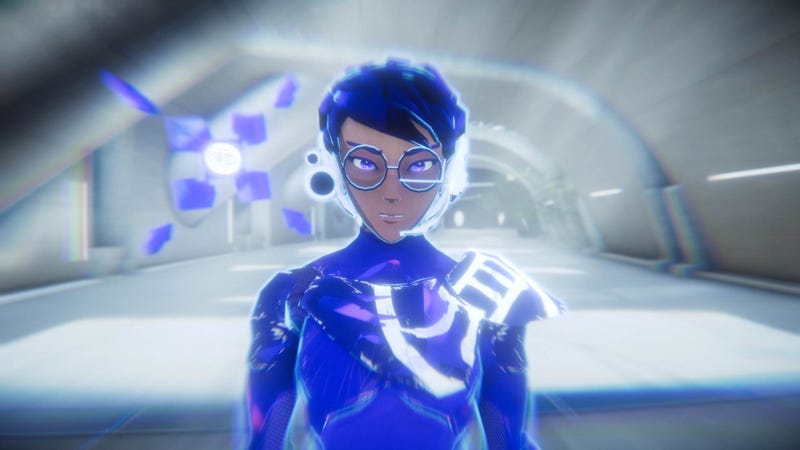
At its core, 1000xRESIST is a walking simulator. That may sound reductive, but the first game from developer sunset visitor does so much with this often-derided genre that it’s endlessly impressive. This sci-fi adventure through the memories of a young girl turned god and her army of clone children has shades of NieR and 13 Sentinels, but stands tall on its own merits with a sprawling narrative built on fantastic characters and beautiful writing. And while its mind-bending sci-fi twists are terrific, there’s more going on here too, as 1000xRESIST’s human story touches on generational trauma and Asian diaspora. It’s an achingly personal and specific narrative, but one that is made universal through its excellent execution. It’s also a game about mother-daughter relationships, so if you want to work out any mommy issues, you have to remember the tissues while playing. — Willa Rowe
Dragon’s Dogma 2
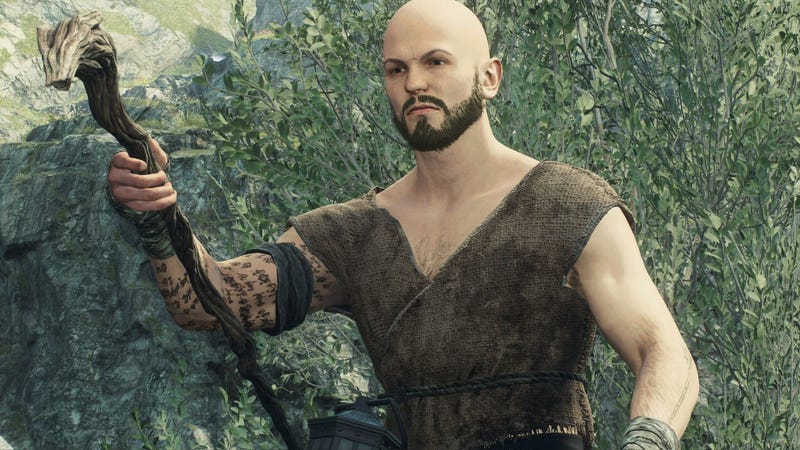
After over a decade of waiting, Capcom finally released a sequel to Dragon’s Dogma. The second game almost feels plucked out of the original’s PS360 era, but that’s a good thing. For all of Dragon’s Dogma 2’s occasional clunkiness and jank, it embodies a style of friction-driven RPGs that we don’t get as often as we should. Capcom’s dark fantasy tale is full of mystery, intrigue, danger, and depth. Dragon’s Dogma 2 invites you into its world while also punching you square in the jaw. It requires patience, caution, and mastery to navigate. That’s why, even though I wholeheartedly recommend it to you, I’m still slowly progressing through it myself. I would love to devour Dragon’s Dogma 2 and all its glory, but it pushes back at every spell I cast and every swing of my pawn’s sword. There are so many secrets I’ve yet to unravel, but even when its challenges discourage me, I pick up my staff and head into Dragon’s Dogma 2’s dangerous world once more. — Kenneth Shepard
Rise of the Ronin
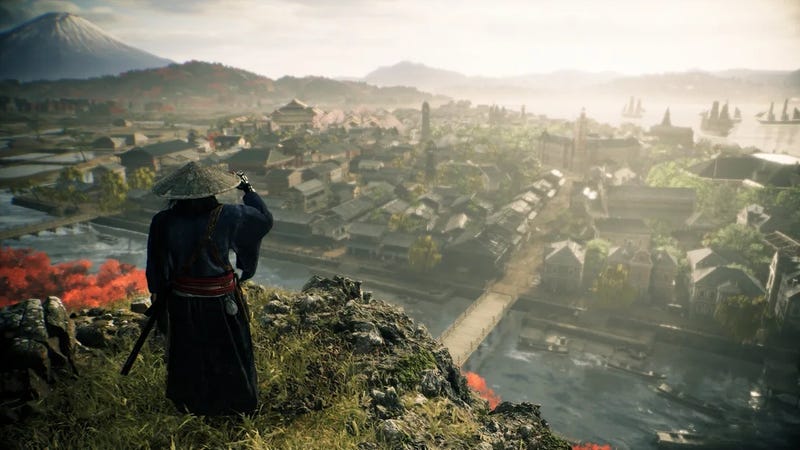
Team Ninja’s latest action-adventure samurai epic has political intrigue, compelling characters, and crunchy combat—but none of that is what makes the game so cool. No, instead, it’s the setting—and the way the game uses it—that gives Rise of the Ronin its cool factor. Taking place during Japan’s Bakumatsu period, the game is something of a playable history lesson. You get to meet important figures of the time while playing through pivotal events that shaped Japan into the country it is today. It also contextualizes the tumult of 19th-century Japan as you slash and stab your way through three iconic cities: Edo (modern-day Tokyo), Kyoto, and Yokohama. The game oozes history in the best way possible, pulling one of the country’s most important eras into the limelight. That’s what makes Rise of the Ronin so terrific. If you loved Ghost of Tsushima or are enamored with the miniseries Shōgun, you don’t want to miss this. — Levi Winslow
Unicorn Overlord
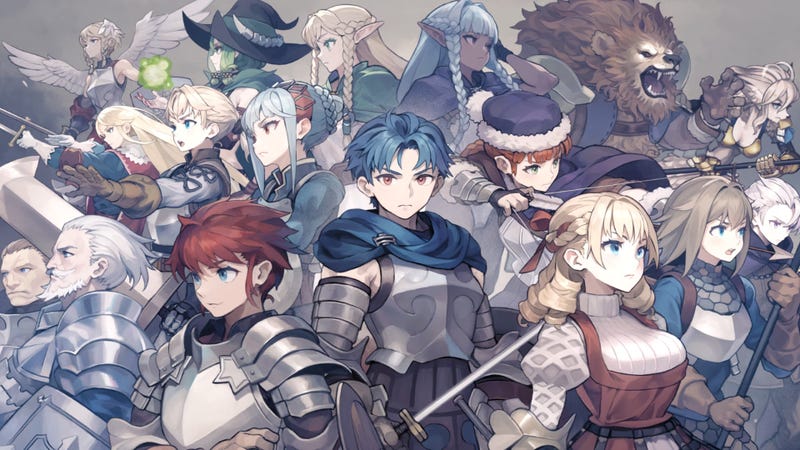
Developer Vanillaware’s take on the strategy RPG is nothing short of mechanical perfection. That’s the selling point of Unicorn Overlord: deep systems and challenging large-scale battles. What’s surprising is just how many systems there are and how well they all work together to create a complex web for you to unravel and master.
Unicorn Overlord combines the best parts of turn-based and real-time strategy games to create a unique blend of its own that keeps you engaged. Organizing characters into units and setting their Final Fantasy XII gambit-style tactics is all about planning and understanding the rock-paper-scissors relationship between classes. But once battles start, it’s a frantic rush to direct units and outmaneuver your opponent. Every battle is bigger and better than the last, adding new twists and variations on what you think you know about how the game works. It’s like extra-complicated chess. The only downside is that this all takes place in a pretty basic medieval fantasy world, and features a story that,while not outright bad, is terribly forgettable. But the excellent combat more than makes up for that. — Willa Rowe
Prince of Persia: The Lost Crown
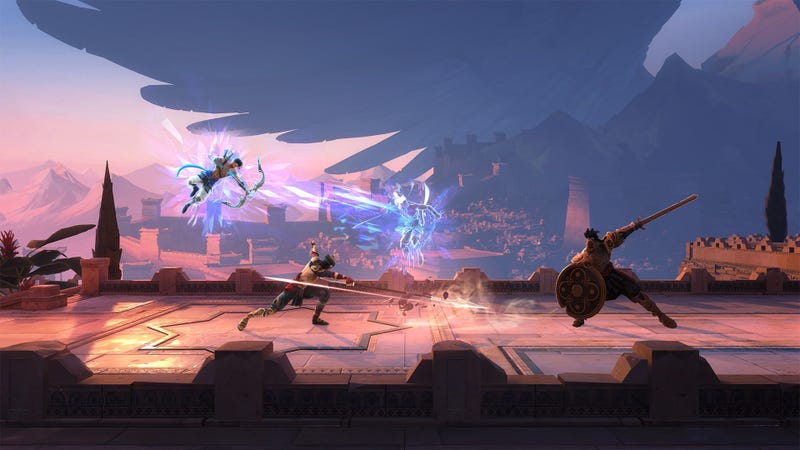
Prince of Persia is so back, kind of. It’s not The Sands of Time remake that we’ve been eagerly waiting for, but The Lost Crown is a solid entry in the storied platform-jumping and time-manipulating franchise. Released on January 18, Prince of Persia: The Lost Crown is a 2.5D side-scrolling action-adventure Metroidvania about using time to change the past, and it rules. There are interesting characters to interact with, a vibrant world rich with environmental storytelling and perplexing puzzles, and tense fights that will leave your palms sweaty and your heart racing. More than all of this, though, The Lost Crown shows that the notoriously punishing Metroidvania genre can be accessible while still maintaining its ethos. It’s the kind of game that’s both a great intro for folks who’ve never played a Metroidvania before and one that’s deep enough for genre aficionados who want something to fill the Hollow Knight: Silksong-shaped void that’s only growing larger. — Levi Winslow
Like a Dragon: Infinite Wealth
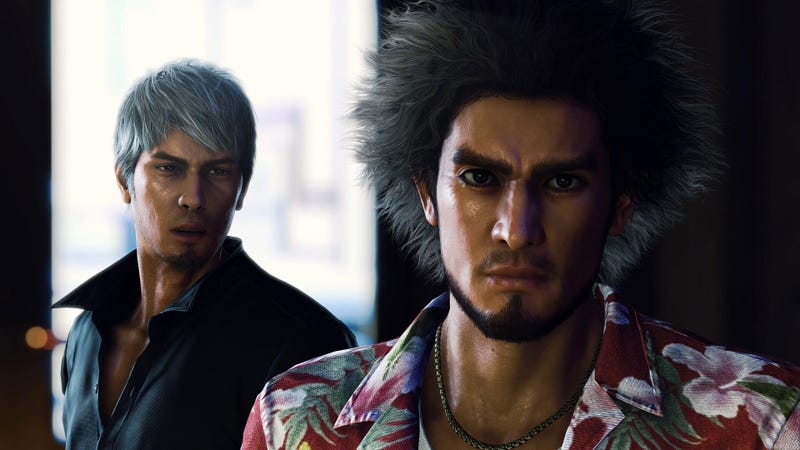
The boys are back, baby. Gaming’s most meme-worthy gangster Kazuma Kiryu teams up with Ichiban Kasuga—the protagonist of 2020’s Like A Dragon—for a sprawling, hilarious island adventure. Infinite Wealth sees Kiryu and Ichiban unraveling the mystery surrounding a Hawaiian cult backed by corrupt politicians and the last vestiges of the criminal underworld. But it’s not all weighty drama: Infinite Wealth is stacked with all the loveable weirdos and bizarre sidequests Ryu Ga Gotoku’s series is known for. There’s dozens of hours of gameplay in this meaty turn-based RPG, but you’ll be sorely tempted to wile away your time building your own Animal Crossing-style resort or just photographing dudes in speedos instead. Better still, the game’s job system and a never-ending supply of batshit baddies make each and every brawl a strategic—and comedic—delight. — Jen Glennon
Tekken 8
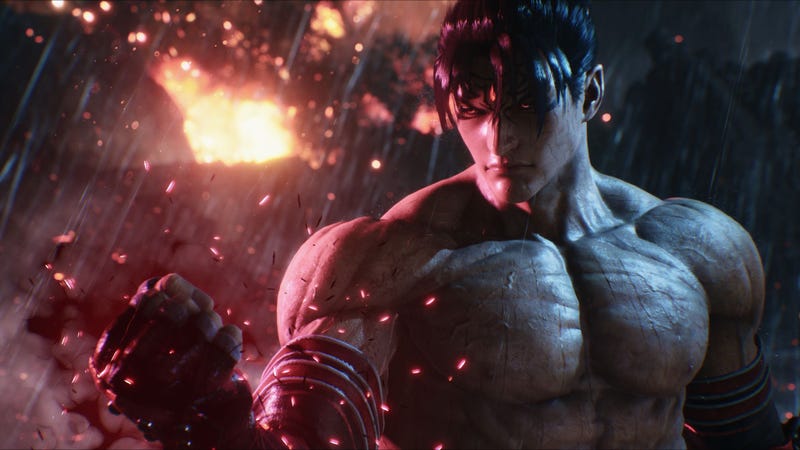
Tekken can be quite the impenetrable franchise, what with its intricate mechanics, deep lore spanning the series, and extensive jargon. It’s no wonder newcomers think the decades-old series is “anti-beginner.” But Tekken 8 completely shakes this idea up by making an entry that’s complex in its systems yet simple in its approach. Tekken 8, the latest 3D fighter from duo developers Arika and Bandai Namco Studios, introduces a lot of character tweaks and new features to create a game that’s welcoming to newbies and oldheads alike. The story is a roaring rollercoaster of a ride, the soundtrack bangs, the fighting mechanics are easy to understand but difficult to master in an approachable way (with the help of an abridged and easily toggleable control scheme called “Special Style”), and the roster is eclectic with richly detailed stages to match. Yeah, this is some good-ass Tekken. And with the game selling over 2 million copies in just one short month, folks seem to agree. — Levi Winslow
Persona 3 Reload
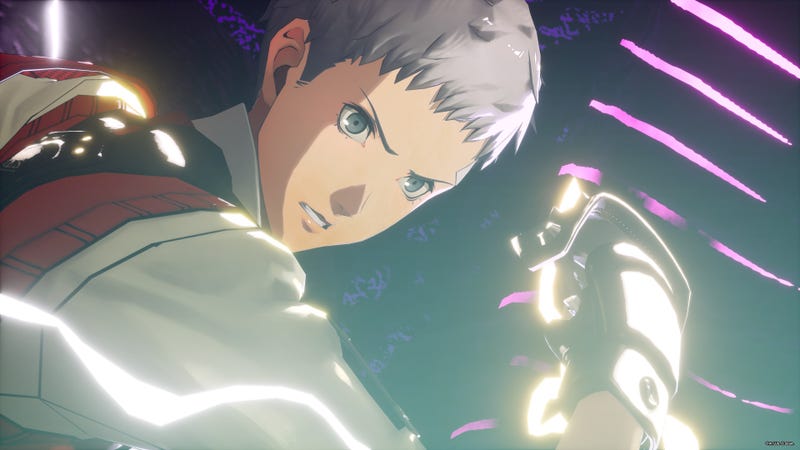
Persona 3 Reload knows not to mess too much with a good thing. The from-the-ground-up remake of Atlus’ 2006 RPG maintains Persona 3’s identity while coating it in modern paint. Persona 3 still has the most memorable cast, most concise and thematically rewarding story, and some elaborate enemy encounter design that the series has lost along the way, and this remake is a stark reminder of that.
On top of making the most of what was always the best game in the series, Persona 3 Reload improves upon the source material in some substantial ways, from making the game more queer-friendly to no longer restricting its social mechanics. Sometimes, you can go home again and remember it’s better than the places you’ve visited since. — Kenneth Shepard
Balatro
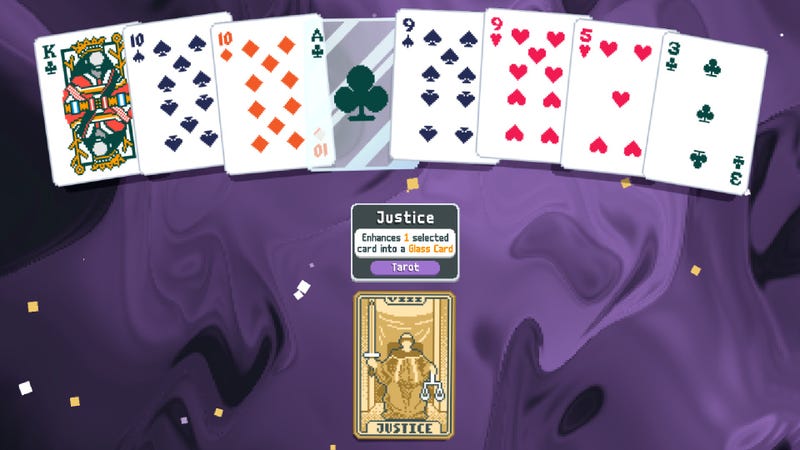
One day in February, I was living my life unaware of Balatro. A few days later, I already know it’ll have an entry on my personal game of the year list. I love a good surprise and Balatro is exactly that. The way this roguelike deckbuilder mixes poker with weird powerups and magic is pure bliss. It’s the kind of game that just lodges itself inside your brain and starts to appear in your dreams. I have to force myself to not play it as I work. It’s challenging.
What helps make this card game so great is how good it feels and looks to play. Every click is matched with a bit of screenshake. The aesthetics, old VHS-like artifacts, and CRT screen effects make it feel like you are playing the game on some old computer haunted by a virus from the Devil himself. So not only is Balatro fun, inventive, and hard to put down, but it also is just a joy to look at and play. It’s a dangerous combo and one that I foresee putting many, many hours into in 2024. — Zack Zwiezen
Helldivers 2
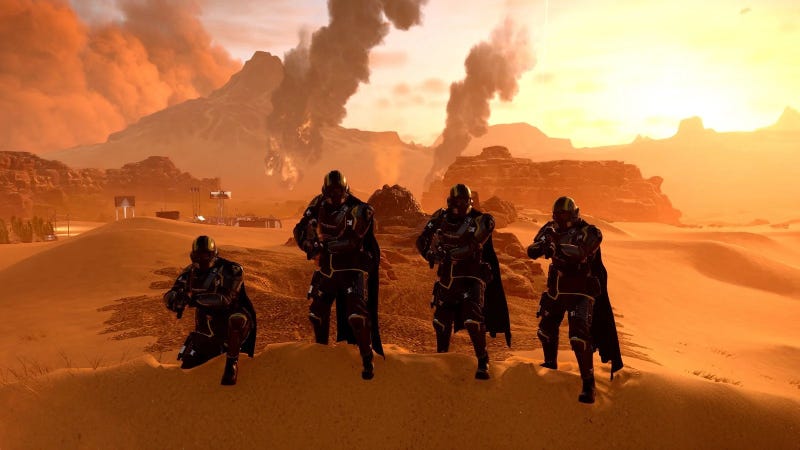
Man, Helldivers 2 is a damn fine game. PlayStation and Arrowhead Games’ new tough-as-nails, third-person, co-op, sci-fi shooter is truly something special. It feels wonderful, looks great, and provides an experience that not many (if any) other online shooters offer right now. It’s a game where you will die, a lot—often from friendly fire or some random accident that was out of your control. And yet, it rarely feels unfair or frustrating. Helldivers 2 always gives you just enough options and tools to scrape by and complete your mission. Not everyone in your squad might make it off whatever alien hell world you find yourselves on, but you can always finish the mission.
It’s this balance, along with some top-notch satirical elements, that elevates Helldivers 2 beyond so many other co-op shooters. Every victory in Helldivers 2 feels earned. Each mission provides new war stories that you and your friends will be swapping for weeks. And all of this is contained in a game that feels entirely focused and not overstuffed with bloat. It’s a streamlined, perfectly paced torture machine fueled by bullets, bombs, and democracy, and it’s one of the best games I’ve played in years. And now, the servers actually work . — Zack Zwiezen
Final Fantasy VII Rebirth
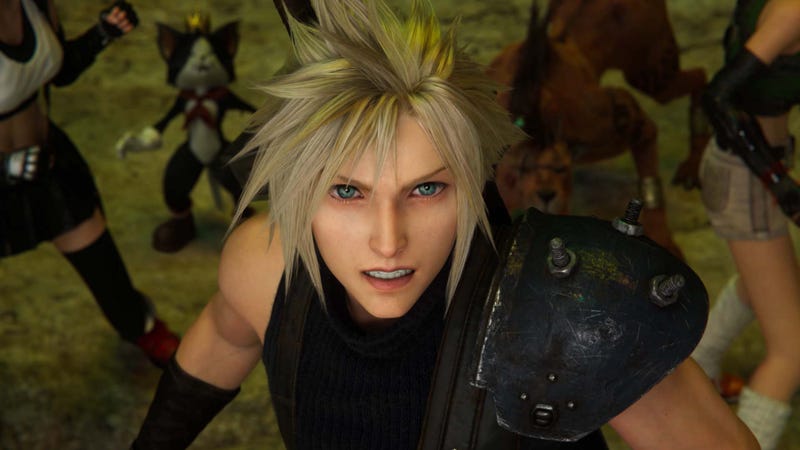
When Final Fantasy VII Rebirth, the second game in Square Enix’s remake trilogy, hits, it is incredible. Because Rebirth tells a drawn-out version (30 to 80 hours) of the middle of the original FF7 story, you spend so much time with Cloud and his friends just bonding. That means it’s home to the most well-realized version of these beloved characters. The action-oriented take on the crew’s journey to stop Sephiroth is one of the best battle systems Square has ever put to a disc, and Rebirth’s additions fill out its team-based combat into something with momentum, style, and strategy without ever compromising on any of those ideas.
But it’s also divisive. Its mini-game-heavy padding and thin plot means it sits in an awkward space for the Remake project as a whole. By the time it reaches its conclusion, it feels like Rebirth has to quickly pivot into something that will lead to a finale, and it doesn’t stick the landing as it takes us into (allegedly) new waters. Maybe when the third game is out, those shortcomings will feel less egregious in context. But even with them,Final Fantasy 7 Rebirth makes the most of its extended run time with some truly memorable and heartfelt moments. It’s a Final Fantasy 7 fan’s dream, and for those of us just passing through, it’s a fascinating project to watch unfold. — Kenneth Shepard
Ultros
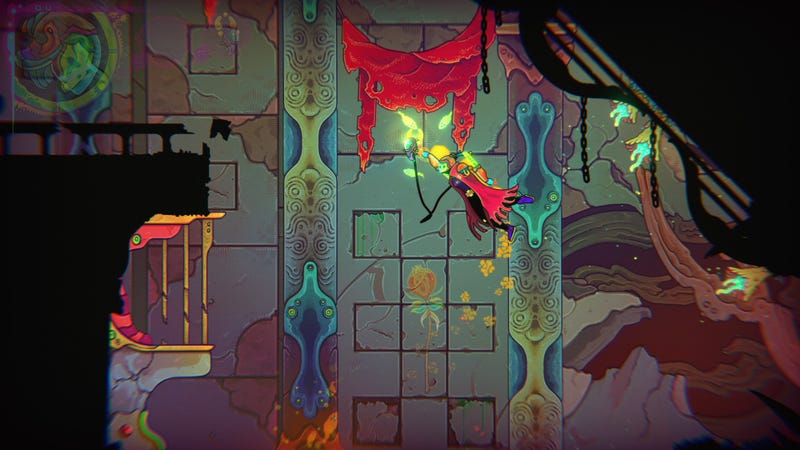
Sometimes it is when we are in the deepest depths of despair that a light shines through to give us renewed hope. This may be how fans of the Metroidvania genre are feeling as five years have come and gone since we first heard about Hollow Knight: Silksong, Team Cherry’s highly-anticipated insectoid side-scroller. With nary a release date in sight, the faithful have resorted to clown memes in an attempt to dull the pain this long wait has inflicted on them. Ah but what’s this? Ultros, from Swedish developer Hadoque, has arrived, acting as Metroidvania manna from heaven. The game begins with your amnesiac character waking up on The Sarcophagus, a giant space station that doubles as a cosmic uterus holding an ancient demonic being, the titular Ultros.
“What?” You may be asking. Don’t sweat the story too much, because Ultros nails its gameplay loop, unlocking abilities and exploring new areas while smartly interweaving roguelite elements that jive with its time-twisting narrative. A unique element of Ultros is its robust gardening mechanics. There are a slew of seeds to be planted across its psychedelic stages that all fill a role, whether for traversal or feeding to enemies and making them pals. Planting fruit in Ultros is so satisfying that this is the first title of its ilk where I sought out playing the pacifist path, but fret not—traditional combat is slick in its own right. Should Silksong slip out of this year, 2024 has already been a banner year for the Metroidvania genre. — Eric Schulkin
Momodora: Moonlit Farewell
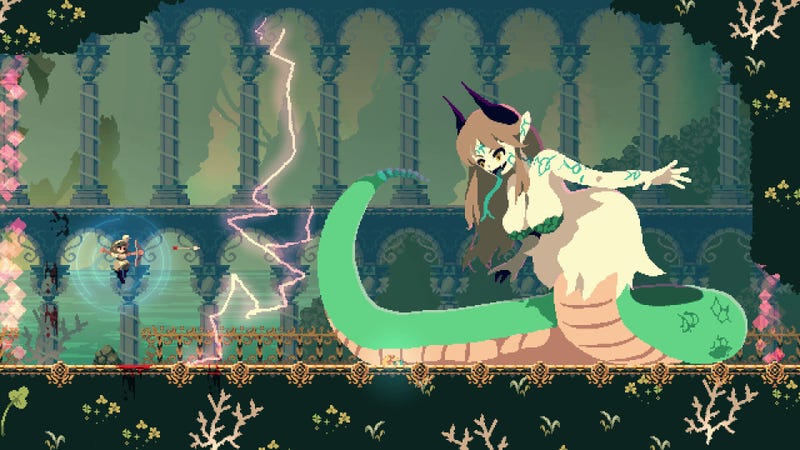
Not long after the start of January, a Metroidvania with tight controls, gorgeous art, and an enthralling story sucked me in. I am, of course, talking about Momodora: Moonlit Farewell. Not to be confused with the other Metroidvania that released this January also on this list.
As the fifth and final entry in the Momodora series, Moonlit Farewell feels like the culmination of years of fine-tuning. Watching leaves float through the wind or your reflection in a pool of water shows off just how good the game’s pixel art is. Dodging away from an enemy and retaliating with a perfectly timed hit feels more responsive than ever. And while it may seem intimidating to try out a game that ties up all the narrative beats from four titles that came before it, Moonlit Farewell is a perfect entry to the series that somehow manages to equally succeed at being a fond farewell sure to satisfy longtime fans. Put simply, it might just be the best indie Metroidvania since Hollow Knight. — Willa Rowe
![The Best Games Of 2024 So Far [Updated]](https://www.kotaku.com.au/wp-content/uploads/2024/04/6f477c89ad67927d3e6749743e99395b.jpg?quality=75&w=640&h=360&crop=1)
Leave a Reply